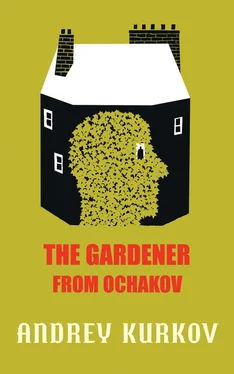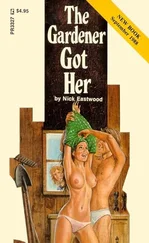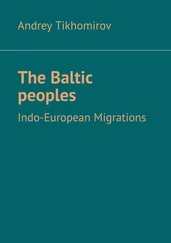‘Are you going to our house?’ Igor asked him.
‘Eventually,’ nodded the gardener.
They continued on their separate ways. When Igor reached the corner he glanced over his shoulder to see whether Stepan was watching him, but he had already disappeared.
Igor walked past Stepan’s houses and on to the end of the street. On the way back, he slowed down again and scrutinised the gardener’s new properties in the gathering twilight. Igor was still having trouble making sense of everything that had happened over the last month. An old man, who was not exactly a tramp but a bit of a vagrant, met a young man who helped him to decipher an old tattoo on his shoulder. This tattoo led them to Ochakov, where they discovered suitcases full of surprises, gifts from the past. Now the man had bought two houses for himself and his daughter, whereas the young man who had helped him was still stuck in a rut, drifting aimlessly through life. All he had to show for it was a knife wound in his side and an unhealthy obsession with the fate of a fish seller from old Ochakov. So what if he knew the path to the past like the back of his hand? Igor’s ‘achievements’ did not even come close to Stepan’s!
Igor found himself near the brightly lit kiosk at the bus station, although he had no idea how he’d got there. He bought a cup of instant coffee and drank it outside the kiosk.
On the way home he bumped into his mother’s friend Olga. She was hurrying towards him in a state of considerable excitement.
‘What’s the matter?’ he called out.
She stopped to catch her breath. ‘I’m just going to the shop,’ she said.
Igor could tell by the look on her face that she wanted to say more. She obviously had some news that she was bursting to share.
‘Guess what,’ she said, pausing for dramatic effect. ‘Stepan has just made me a proposal!’
‘Lucky you,’ smiled Igor.
Unimpressed by his reaction, Olga waved her hand dismissively and went on her way.
When Igor got home, the house was unusually quiet. The atmosphere had changed somehow since Stepan had left. It had been nice having his daughter to stay too, even though it had only been for a couple of days. Now, as he walked down the hallway, Igor couldn’t even hear the television.
He found his mother in the kitchen. She was sitting quietly at the table with a glass of home-made wine, looking pensive but calm.
‘Can I join you?’ asked Igor.
‘If you like,’ nodded Elena Andreevna. ‘Sitting here by myself isn’t helping… It’s just going round and round in my head.’
‘What is?’ asked Igor, pouring himself a glass of wine.
‘Stepan proposed to me,’ she said, looking closely at her son.
Igor’s mouth fell open.
‘It took me by surprise too,’ admitted Elena Andreevna. ‘Of course, he’s a respectable man –’
‘You think so?’ asked Igor, glancing at the scales on the windowsill. ‘He proposed to your friend Olga too, you know. I’ve just seen her on the way to the grocery shop, quite beside herself with joy!’
He regretted his words as soon as he saw the effect they had on his mother. Her face fell, she turned pale and her hands started shaking. She stood up and went into the hallway, and Igor heard her putting her coat on. The front door slammed behind her.
It’s all going to kick off now! he thought, imagining his mother storming round to Olga’s and the two of them having an almighty row.
Igor picked up his glass of wine and took a sip. He didn’t particularly feel like sitting there waiting for his mother to get back, so he took Iosip’s book from the windowsill and went to his own room. He moved the reading lamp to his bedside table and settled down on his bed with the book. He was soon absorbed in the eccentric ramblings of Iosip Sadovnikov, avowed enemy of Soviet canteen food. Igor found himself noting with regularity how easily the handwritten text overcame his scepticism, making him look at certain culinary issues in a new, more serious way.
He found the chapter about salt and sugar completely fascinating, for example – so much so that he didn’t even hear his mother come back. He didn’t hear her throw her coat angrily at the coat stand, or the way the coat slipped off and fell to the floor.
His mother glanced into the kitchen, then opened the door to Igor’s bedroom. She marched over to his bed and raised her hand as though she were about to slap his face, but she managed to restrain herself. Only her eyes, aflame with anger, fell on her son’s face.
‘You stupid fool!’ she exclaimed. ‘You almost gave me a heart attack!’
‘I didn’t do anything!’ protested Igor. ‘I only told you what I’d heard!’
‘What did you hear, exactly?’ cried his mother. ‘He didn’t “propose” to her, he “made her a proposal”. Don’t you get it?’
‘What’s the difference?’ asked Igor, recalling that Olga had indeed told him that Stepan had ‘made her a proposal’.
‘When you “make someone a proposal”, it means a business proposal. He asked her to be the manager of his cafe. But he proposed to me in the other sense of the word… He asked me to marry him!’
‘I wonder if he’d consider making me a proposal too,’ remarked Igor, his lips curling into a smile.
His mother turned round and left without another word, slamming the door. Igor moved the reading lamp to the edge of his bedside table and opened the manuscript again at page 48, which bore the heading ‘Man and Food’.
People can be divided into two categories, according to the way they naturally relate to the world around them: gardeners and foresters. Gardeners essentially see the world as a garden, in which it is their responsibility to behave appropriately, to fix whatever is broken, to decorate whatever is built and to keep order. Foresters, on the other hand, prefer an uncultivated environment. They are more inclined to break things and live in disorder than to build, renovate or repair. Foresters are more ruthless, but they are also physically stronger and more robust. They believe that it is impossible to change the world, whereas gardeners are always trying to improve it. Most men are foresters, and most women are gardeners. Male gardeners are able-bodied but often lack tenacity in their undertakings and the courage of their convictions. Foresters and gardeners differ also in their approach to food. This does not mean that foresters prefer simple food, merely that they tend to lose their natural ability to distinguish and evaluate refined tastes. They are more interested in the size of their portion – when everyone at the table is served an identical meal, the first thing they do is check to see who has been given the most. Gardeners do not usually lose their ability to distinguish refined tastes. In fact, sometimes their perception of taste is developed to such an extent that they are capable of detecting nuances that are not really there.
Igor looked up from the manuscript, deep in thought. The words he had just read made perfect sense. He automatically thought about Stepan. Was he a gardener or a forester? A gardener, it would appear. Igor thought about himself, about his own culinary preferences and, if truth be told, about his growing indifference to food and to the world around him.
‘I don’t seem to be either a gardener or a forester,’ he concluded sadly. ‘Neither fish nor fowl… But I used to build such beautiful sandcastles on the beach in Yevpatoriya when I was little! So, I could have become a gardener.’
Igor smiled at his memories, then shook his head.
I’m taking it all far too seriously, he decided. It’s not a psychology textbook, it was written by an ordinary man of the people… He might not even have finished school!
But Igor wasn’t convinced by his attempts to dismiss the book’s significance. It sounded unnatural and insincere, like a second-rate actor whose gestures do not correspond to the spirit and sentiment of his lines. He turned his attention back to the page he had been reading.
Читать дальше












